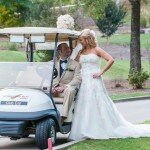 As we grow older we tend to enjoy reminiscing with our friends, reliving experiences which seem to be even more enjoyable in the reliving of them than they were in the first place. If one is possessed of a pretty good memory of things long gone, it could be seen as a blessing. But if there is nobody to remember it with, it isn’t much fun. If you relate your experiences to young people, they are bored and think you were crazy or terribly deprived to actually enjoy the things you did.
As we grow older we tend to enjoy reminiscing with our friends, reliving experiences which seem to be even more enjoyable in the reliving of them than they were in the first place. If one is possessed of a pretty good memory of things long gone, it could be seen as a blessing. But if there is nobody to remember it with, it isn’t much fun. If you relate your experiences to young people, they are bored and think you were crazy or terribly deprived to actually enjoy the things you did.
People older than you aren’t interested at all, and people your own age can’t remember. There is one other side to the coin, however. That is, if nobody recalls the event, it offers the opportunity to warp the truth to fit one’s preferences, or to make the tale more exciting, more self-fulfilling. And there is nobody to call you down on it. I am not suggesting that I do that. No sir! But most folks will agree that colorful threads make a more interesting fabric.
I lost a friend from childhood who passed away a few years ago. Sam Cowan was my age. We walked to school together, as he lived next door on top of the hill at the corner of O’Kelley and Scott Streets. Sam’s dad, Mr. Rufus Cowan, was an avid fox hunter, and kept a pack of very slender fox hounds in a large fenced-in area at the corner. Mr. Cowan also bought dog biscuits for his hounds in 100 pound croker sacks, which he stored in a backyard shed.
During the years while WWII raged in Europe and the Pacific, Sam and I, aged about 9 or 10, were well primed on the weapons of that era. Occasionally we carried a sack of grenades made of potatoes with firecrackers in them to carry along with our BB guns when we went on “patrol” in nearby woods. If our mission carried us near water, we carried several of the heavy two-inch firecrackers which could be tied to rocks to perform as portable depth charges in the water.
Remarkably, the fuses burned dependably under water. Even deep water. Most often the objective was a three acre bottom-land at the terminus of present day Davis Drive. At other times it was the city garbage dump on East View Road.
Sometimes, we constituted a “squad” of two, and assaulted a hill, sometimes defended one. Strangely, we operated without a “leader”. We worked on a basis of consensus, as neither of us would have consented to being “led” by the other.
If the patrol was going to be a long one, we went to Mr. Cowan’s shed and filled our pockets with “rations” before starting off. The dog biscuits of that day were probably made of stuff you would not feed your dog today or allow your dog to eat. Think offal – entrails and waste from chicken plants and slaughterhouses.
Certainly, there were no regulations whatsoever as to what could be put into them. But Sam had discovered that they made good “war rations” in that they were virtually indestructible, carried in the pocket, and he said they made good army rations. I tried one and agreed.
We were set for the duration of the war, with a shed full of rations just waiting for us and the hounds. We were aware of the WWII boredom with rations, whether C-rations or K rations, and after surviving for a few hours on our rations of dog biscuits, we could relate keenly to the G.I’s problem, and declared that it was time to get back to our own lines.
The only objection I had to our rations was that they had a distinctly rancid taste followed by a bouquet of bitterness and greasiness that clung to the teeth. There is no telling what created that. In the words of the a popular song from that era, “I wonder, I wonder, I wonder; but I really don’t want to know.” The unsavory taste of the dog biscuits imbued to them, in our minds, a quality resembling reality.
There was one thing, for sure. After a patrol in the woods subsisting for an afternoon on dog biscuit rations, hunger was not a problem. A day or two on R&R was a welcome respite.
Did I mention that Mr. Cowan’s fox hounds were very slender? No wonder. They lived completely on “army rations”.



















No Responses to “On Patrol, 1943”